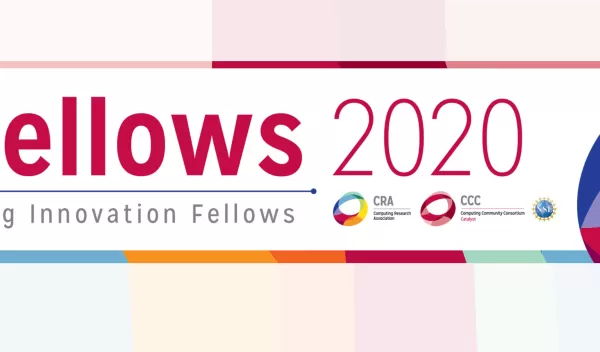
NSF announces 2020 Computing Innovation Fellows Program
The COVID-19 pandemic is disrupting all aspects of daily life and work, including what would normally be the new faculty recruiting season at institutes that perform research in computer and information science and engineering. In response, the National Science Foundation has funded the Computing Innovation Fellows (CIFellows) Program for 2020, a short-term effort to ensure that recent and upcoming U.S. Ph.D.s can remain productive in the research community until permanent research positions become available.
Supported through a $17 million award from NSF's Directorate for Computer and Information Science and Engineering (CISE), the Computing Research Association (CRA) and Computing Community Consortium (CCC) will run the CIFellows Program, offering nearly 60 postdoctoral opportunities over the next two years in computer and information science and engineering and other closely related fields.
"In the wake of the COVID-19 pandemic, we have seen unprecedented disruption to all parts of our society and economy, including our nation's academic institutions," said Margaret Martonosi, NSF's assistant director for CISE. "As we strive to help respond and care for our community, we are proud to support the 2020 CIFellows Program, which seeks to maintain talented, early career computer science researchers and educators in research pathways so that they can shape the future of the field for years to come."
A CRA survey completed on April 1, 2020, counted about 100 faculty positions being pulled from the market due to hiring freezes, and universities continue to forecast major financial losses for the upcoming academic year. These freezes come at a time when institutes would normally be recruiting new graduates. Without such opportunities, early career researchers, many of whom received federal support for their training, would likely be forced into other fields, depriving the U.S. of resources needed to drive the future economy.
The country needs a bridge to keep these highly trained researchers in the academic pipeline to preserve future computing innovation and to meet the training needs of future computing professionals. The fellows will use their time for research, enhancing their training and teaching, thereby contributing to both the current research environment and the future computing workforce.
A decade ago, CRA and CCC provided such a bridge following the Great Recession with the first NSF-funded CIFellows program, which kept 127 early career scholars in research and teaching with career-enhancing programs. CIFellows takes inspiration from that earlier project but adapts to the current uncertain situation by incorporating greater flexibility. Each fellow will have the option of doing a postdoc at their current institution or another. CIFellows can come from any research area supported by CISE.
CRA and CCC will design an application and selection process based on the style used in most technical conferences in which a program committee will assess applicants along multiple dimensions of merit and diversity and adhere to strict conflicts of interest rules to mitigate bias. Major emphases will be placed on intellectual merit and broader impacts in applicant materials.
